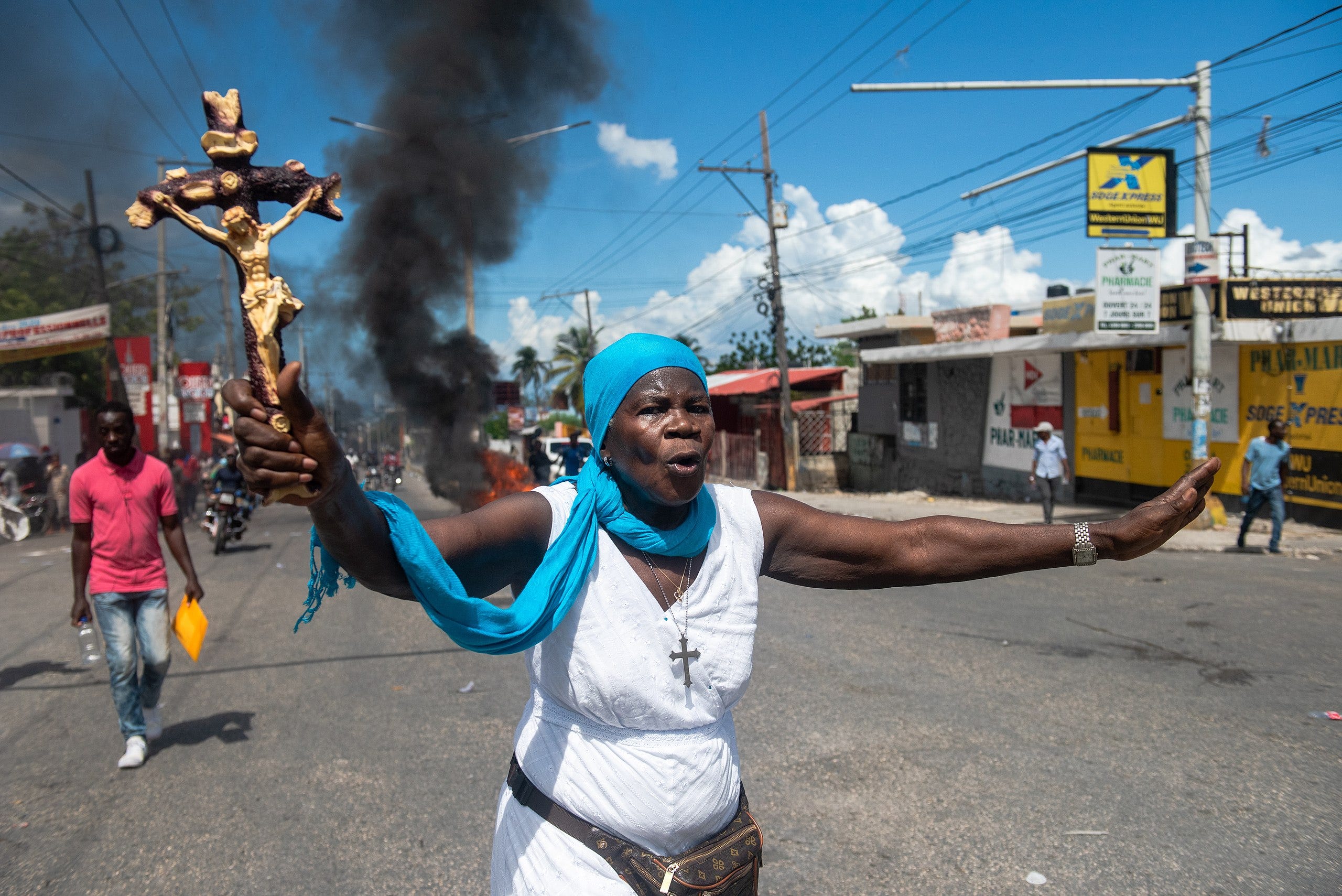Joaquim Magalhães de Castro
With the political situation still very volatile on the island of Haiti, the difficulties experienced by the local Catholic Church in recent times do not appear to be abating in the near future.
Speaking to the Vatican news agency, Marcella Catozza, from the Franciscan Sisters of Busto Arsizio, a missionary in Haiti for 20 years, summarizes what is happening: “Our situation is as difficult as the general reality in Haiti”. In other words, the Church reflects the reality of this Caribbean country devastated by violence caused by criminal gangs. One of the main factors that makes life difficult is the lack of viability in communications, whether of a technological or road nature. “We are all somewhat isolated, trying to build points of contact wherever we can,” explains the Italian nun, whose main activity is concentrated in one of the largest slums in Port-au-Prince.
The list of disastrous events is already long. In addition to the direct consequences of natural disasters – storms and earthquakes are frequent in that region – which have already killed an archbishop and several vicars of the Archdiocese of Port-au-Prince, in addition to the destruction of seminaries and other religious facilities, we now have the phenomenon of kidnappings , and even attacks with terrorist characteristics.
On February 18, Pierre André Dumas, bishop of Anse-à-Veau Miragoâne, was seriously injured in an explosion in the capital of Haiti. Neither gang claimed responsibility for the attack. Monsignor Dumas, who is also vice president of the Haitian Episcopal Conference (CEH), is currently recovering in a Florida hospital. In January, the prelate offered himself as a hostage in exchange for the six nuns from the Santa Ana congregation who had been kidnapped in Port-au-Prince, an appeal also made by Pope Francis during his usual Angelus. The vice-president of the CEH has always criticized and fought against the criminal gangs that operate with impunity in Haiti, especially against the crime of kidnapping, which he classifies as an “inhumane and despicable practice”. Dom Dumas also does not spare the Haitian political class, who he constantly asks to abandon individualism to overcome the economic, political and social crisis that permanently devastates this Caribbean country. And recently he even fought for a peaceful transition of power, as “society is paralyzed by fear and this is a symbol of failure”.
Fortunately, many kidnappings end up being resolved peacefully, with the victims emerging unharmed. A few days after the attack on Dom Dumas (on March 5th), three nuns from the congregation of Saint Joseph of Cluny, kidnapped by an armed gang while working in an orphanage in the city of La Madeleine, were eventually released. Also, four of the six religious from the Congregation of the Brothers of the Sacred Heart, kidnapped on February 23 while heading to the João XXIII School Mission, located in the Bicentenaire neighborhood, would be released on March 10, but no precise news is provided on the subject by the Haitian National Police.
As stated at the beginning, the political situation in the country remains blocked and the nine members of the Presidential Transition Council have not yet reached an agreement on the name of the new Prime Minister. The Presidential Transitional Council was created after Ariel Henry was forced to resign due to threats from armed gangs who effectively control the capital of the country. And this only happened because there was a lot of international pressure and mediation from the Caribbean Community (Caricom). The Haitian bishops decided not to participate in the formation of this body, so that they could maintain equidistance. In their pastoral letter of March 18, they state that “to maintain the moral distance that allows it to fulfill its prophetic mission, the CEH (Haitian Episcopal Conference) has not appointed anyone to represent the Catholic Church in the Presidential Transition Council or in any structure government.” They hope, however, that the ongoing talks will lead to a “truly patriotic, inclusive and lasting” agreement, in the interests of all the Haitian people, “who aspire to peace and prosperity”.
The Episcopal Conference of Haiti is in line with the most recent call “to end violence in Haiti, for peace and reconciliation” launched by Pope Francis. “While we await the constitution of the institutional bodies that must bring the transition to a successful conclusion, we indiscriminately invite all Haitians not to fuel violence, because violence generates violence, hatred generates more hatred and death more death”, continues the note. “All destruction delays or delays Haiti in its march towards the progress we all desire.” However, the road to pacification in Haiti still seems long. In addition to the difficulties within the Transitional Council itself, the international community is also struggling begin sending a police force led by Kenya to help the new Haitian authorities regain control of the capital, currently in the hands of around 300 armed gangs.


 Follow
Follow


